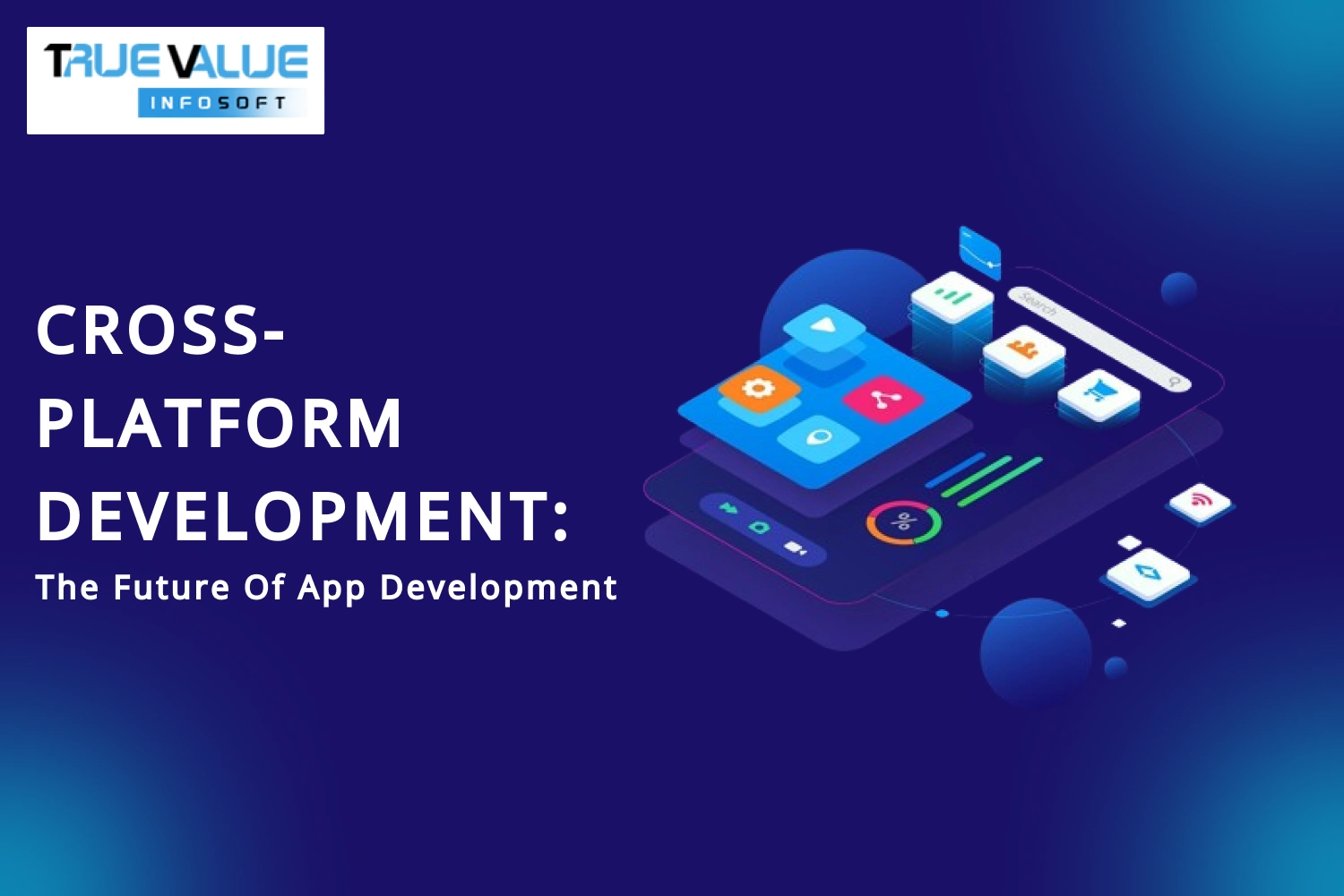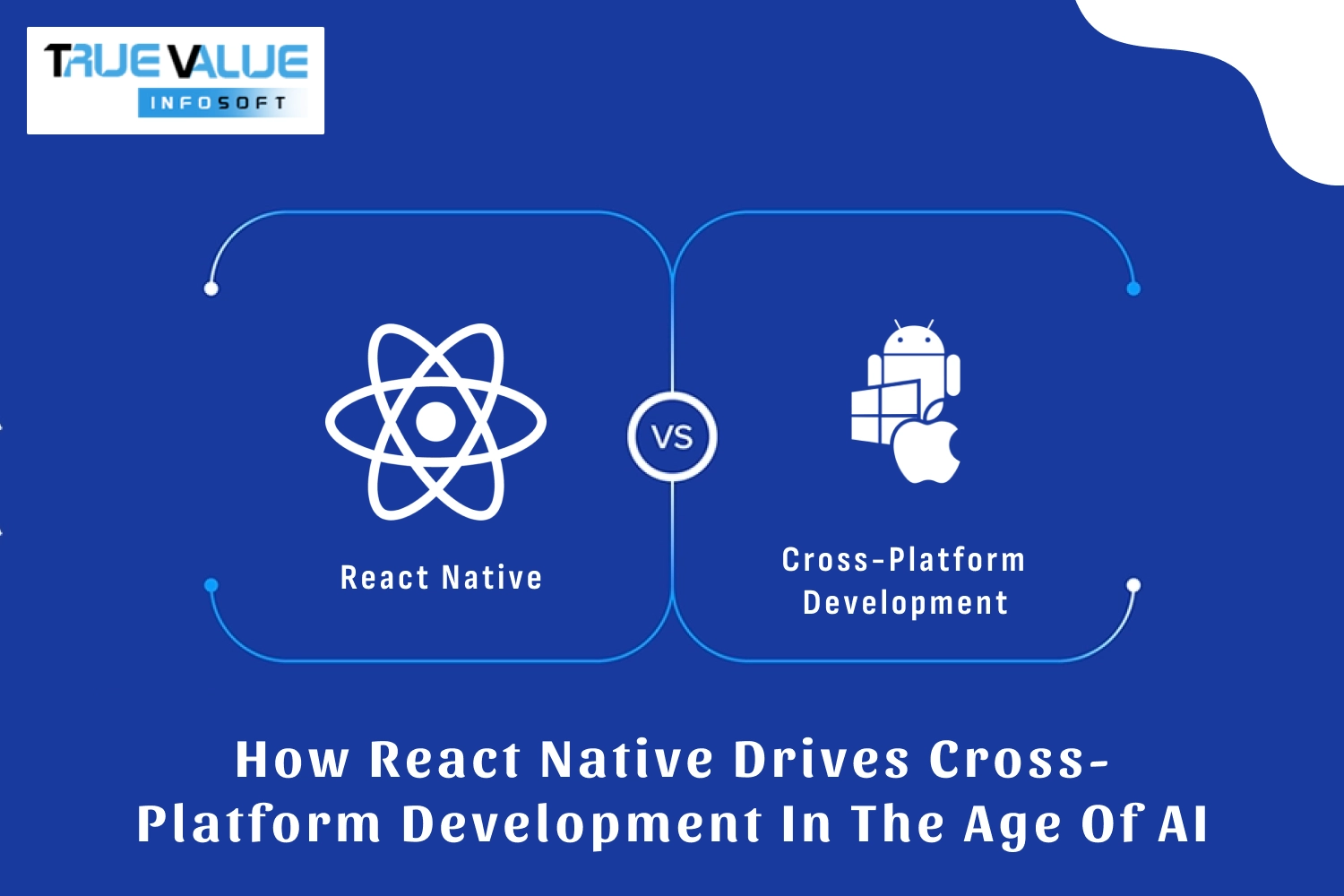Introduction
Have you ever wondered how modern mobile applications achieve seamless performance across different platforms without requiring separate codebases for Android and iOS? The answer lies in React Native, a powerful framework that has revolutionized cross-platform development. In an era where artificial intelligence (AI) is reshaping the way we interact with technology, the demand for efficient, intelligent, and adaptive mobile applications is at an all-time high.
At True Value Infosoft, the best app development company in India, we specialize in leveraging React Native to create high-performing, AI-driven mobile applications. Our expertise in cross-platform development ensures businesses can reach wider audiences with minimal effort while maintaining a native-like experience. React Native, combined with AI capabilities, allows developers to build smart applications that provide personalized experiences, process large datasets, and enhance user engagement through intelligent automation.
What is Cross-Platform Development?
Cross-platform development refers to the practice of building software applications that are compatible with multiple operating systems, such as iOS, Android, Windows, and macOS. Unlike traditional native development, which requires separate codebases for each platform, cross-platform development allows developers to write code once and deploy it everywhere.
Native vs. Cross-Platform Development
| Feature | Native Development | Cross-Platform Development |
|---|---|---|
| Codebase | Separate for each platform | Single, shared codebase |
| Performance | Optimized, fast execution | Slightly lower than native |
| Development Time | Longer | Shorter |
| Cost | High | Lower |
| Maintenance | Complex | Easier |
Why Choose Cross-Platform Development?
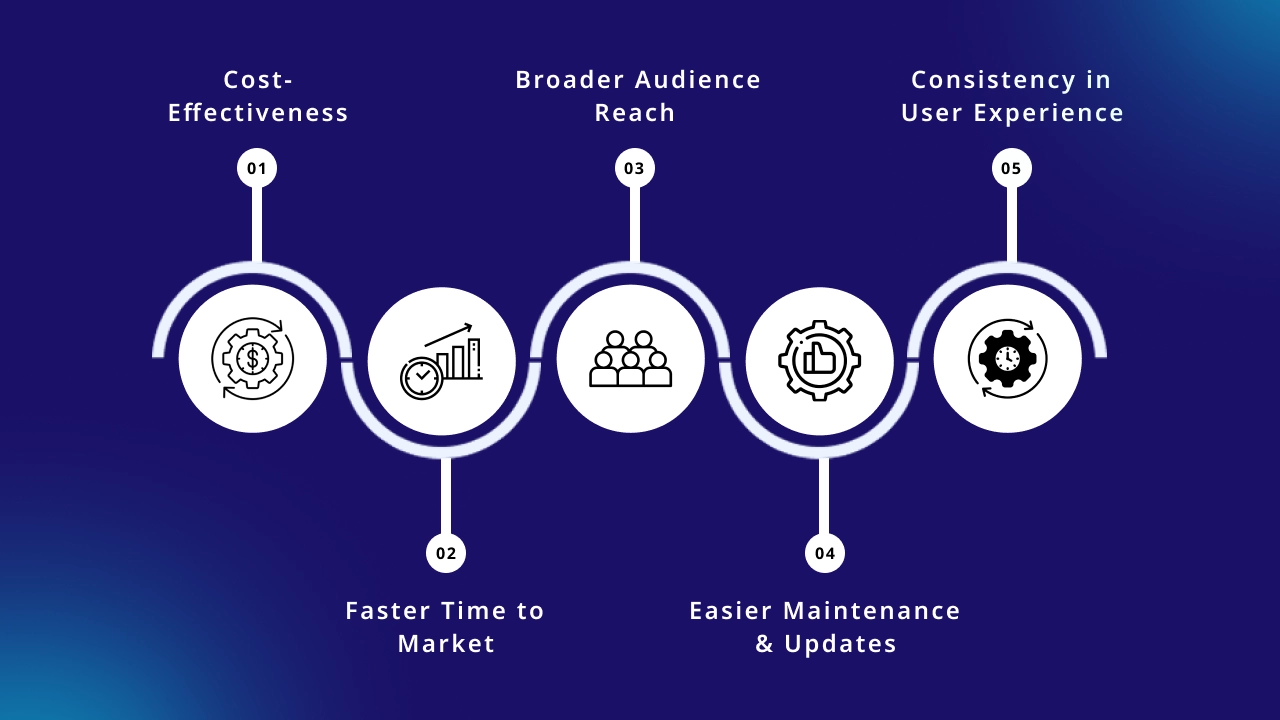
1. Cost-Effectiveness
Developing a single codebase reduces costs associated with hiring separate development teams for different platforms. This is especially beneficial for startups and small businesses.
2. Faster Time to Market
With a unified development process, businesses can launch their apps faster than traditional native development methods.
3. Broader Audience Reach
Cross-platform apps allow businesses to target users across various platforms without additional investment in multiple codebases.
4. Easier Maintenance & Updates
Since there's only one codebase to manage, updates and bug fixes can be deployed simultaneously across all platforms.
5. Consistency in User Experience
Cross-platform frameworks ensure a uniform UI and UX across different devices, maintaining brand identity and user familiarity.
Popular Cross-Platform Development Frameworks
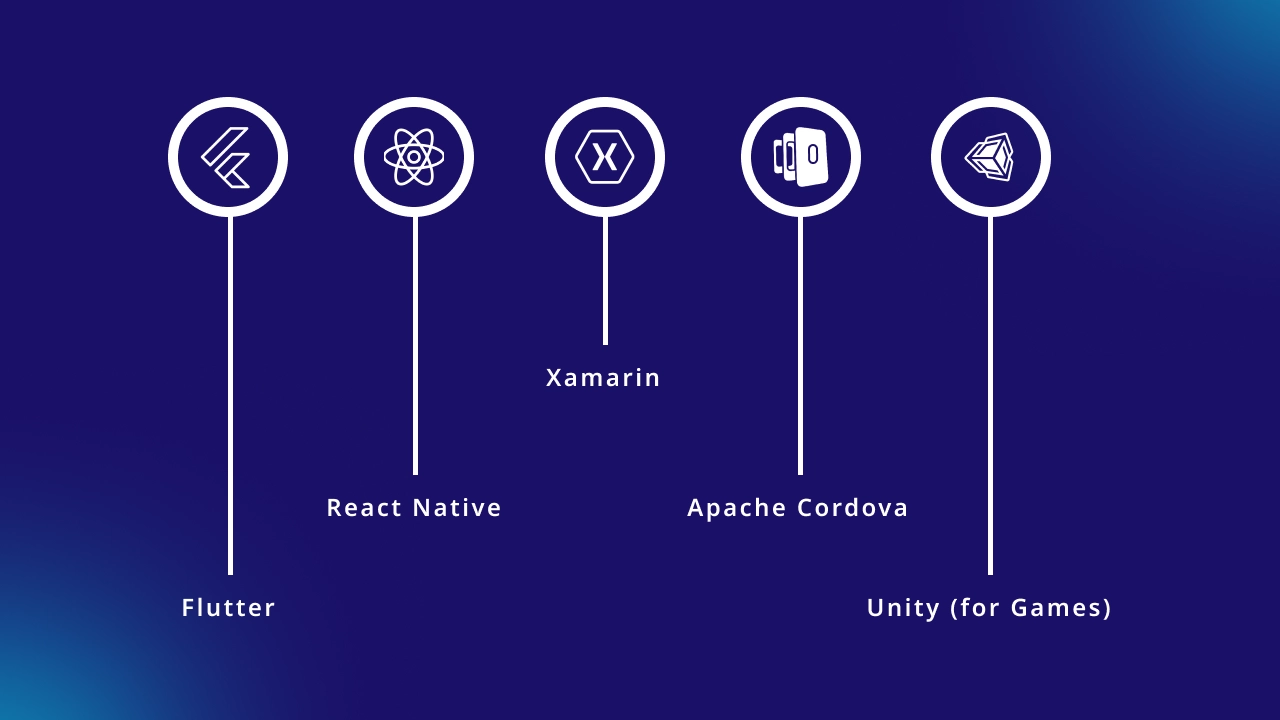
1. Flutter
- Developed by Google.
- Uses Dart programming language.
- Offers a rich UI with customizable widgets.
- Compiles to native code for high performance.
2. React Native
- Developed by Facebook.
- Uses JavaScript and React.
- Large developer community and third-party plugins.
- Near-native performance with hot-reloading capabilities.
3. Xamarin
- Owned by Microsoft.
- Uses C# and .NET.
- Deep integration with Windows applications.
- Ideal for enterprise applications.
4. Apache Cordova
- Uses HTML, CSS, and JavaScript.
- Suitable for hybrid apps.
- Plugins allow access to native device features.
5. Unity (for Games)
- Ideal for cross-platform game development.
- Uses C# and Unity engine.
- Supports multiple platforms including iOS, Android, PC, and consoles.
Challenges in Cross-Platform Development
1. Performance Limitations
Cross-platform apps may not achieve the same level of performance as native apps, especially for graphics-intensive applications.
2. Platform-Specific Features
Not all native features and APIs are easily accessible in cross-platform frameworks, requiring additional workarounds.
3. UI/UX Challenges
Maintaining a consistent user experience across different devices can be complex due to varying screen sizes and resolutions.
4. Security Concerns
Cross-platform apps can be more vulnerable to security threats if not properly implemented.
5. Dependency on Frameworks
Updates and long-term support depend on the framework’s developers and community, which can sometimes be unpredictable.
Best Practices for Cross-Platform Development
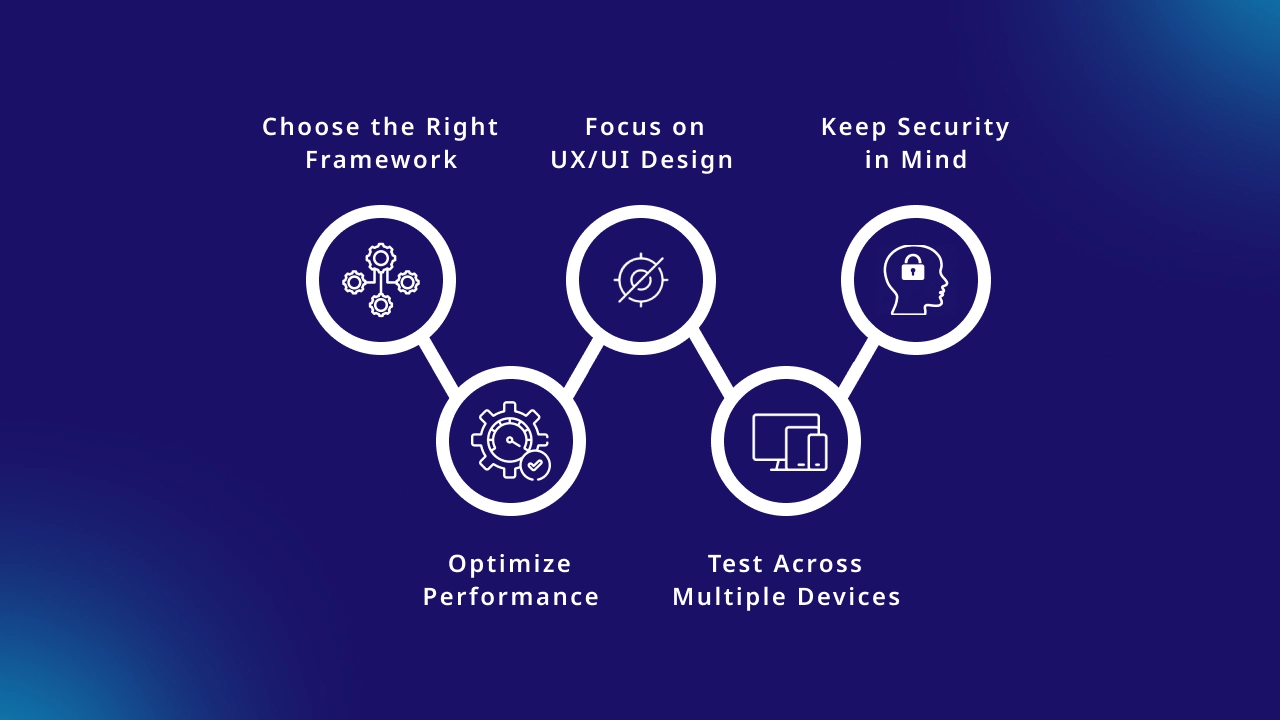
1. Choose the Right Framework
Selecting the best framework depends on project requirements, team expertise, and target platforms.
2. Optimize Performance
Use platform-specific code where necessary to optimize performance and ensure a smoother user experience.
3. Focus on UX/UI Design
Leverage platform-specific design guidelines (Material Design for Android, Human Interface Guidelines for iOS) to ensure a native feel.
4. Test Across Multiple Devices
Regular testing on real devices helps identify inconsistencies and ensures compatibility across different screen sizes.
5. Keep Security in Mind
Use proper encryption methods, secure APIs, and adhere to security best practices to protect user data.
Future of Cross-Platform Development
With continuous advancements in technology, cross-platform development is evolving rapidly. Here are some key trends:
1. Increased Adoption of AI & ML
Cross-platform apps will integrate more artificial intelligence (AI) and machine learning (ML) capabilities to enhance personalization and automation.
2. Growth of Progressive Web Apps (PWAs)
PWAs offer an alternative to traditional apps by delivering an app-like experience via web browsers.
3. Enhanced Cloud Integration
Cloud-based solutions will simplify data storage, improve performance, and enable seamless cross-device experiences.
4. Better Cross-Platform Performance
New frameworks and technologies, such as Google’s Flutter and Microsoft’s MAUI, aim to bridge the performance gap with native development.
5. Wider Adoption in Enterprise Solutions
Businesses will increasingly adopt cross-platform apps for internal and external applications, streamlining development and maintenance.
Why Choose True Value Infosoft for Cross-Platform Development?
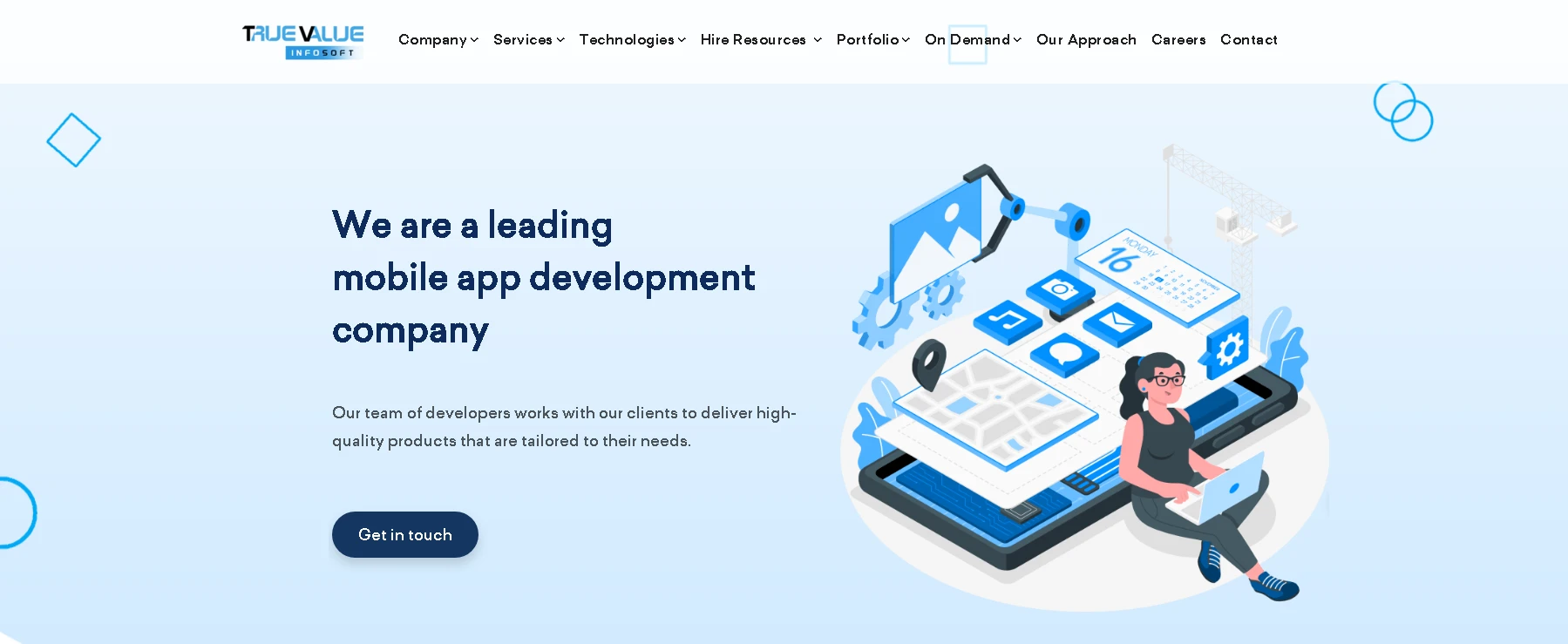
True Value Infosoft stands out as the best app development company in India, offering cutting-edge cross-platform development services. Here’s why choosing us is the best decision for your business:
- Expertise in React Native: Our skilled developers have extensive experience in building high-quality applications using React Native, ensuring superior performance and a seamless user experience.
- AI-Driven Solutions: We integrate AI into applications to enhance functionalities, automate processes, and provide a personalized user experience.
- Cost-Effective Development: With a single codebase, we reduce development costs while delivering applications that perform natively on both Android and iOS.
- Faster Time-to-Market: Our agile development approach ensures that your app is developed, tested, and launched in record time.
- Ongoing Support & Maintenance: We provide long-term support, updates, and optimizations to keep your app running smoothly.
Choosing True Value Infosoft means partnering with a team dedicated to innovation, quality, and excellence in mobile app development.
Mobile app development company in India
Conclusion
React Native has become a game-changer in the world of cross-platform mobile development, particularly in the AI era. Its ability to deliver high-performance applications with a single codebase, combined with AI-driven functionalities, makes it the ideal choice for businesses looking to create intelligent and user-friendly applications.
True Value Infosoft, the best app development company in India, is at the forefront of this transformation. With our expertise in React Native and AI integration, we help businesses build scalable, efficient, and future-ready applications. If you’re looking to leverage the power of AI in your mobile app, now is the time to make the right choice with True Value Infosoft.
FAQs
React Native allows developers to write a single codebase that runs on both iOS and Android, reducing development time and cost while maintaining native-like performance.
AI improves user engagement, automates processes, enhances personalization, and enables advanced features like voice recognition, chatbots, and predictive analytics.
Yes, React Native can integrate with AI frameworks like TensorFlow and PyTorch, enabling apps to leverage machine learning models efficiently.
Absolutely! Many large enterprises use React Native due to its scalability, performance, and ability to integrate with AI-powered cloud solutions.
True Value Infosoft specializes in developing AI-driven cross-platform applications using React Native, ensuring high performance, seamless UX, and cutting-edge functionalities.
